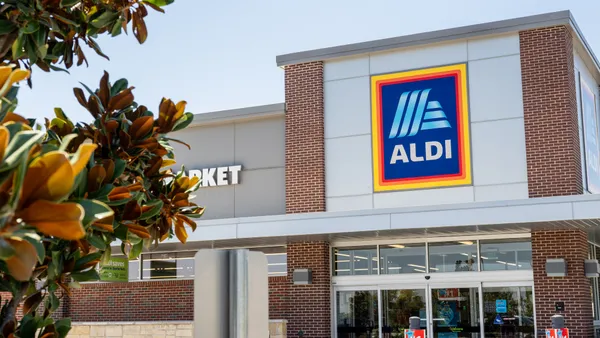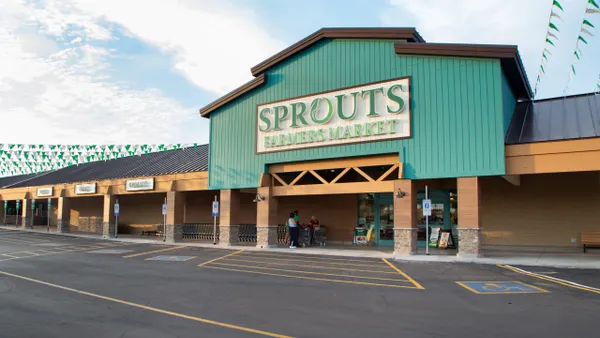Dive Brief:
- The National Grocers Association (NGA) and the Specialty Food Association (SFA) have both announced that their trade shows will be held in-person in September, despite uncertainty around the future state of the coronavirus pandemic.
- SFA’s Fancy Food Show, planned for Sept. 27-29 in New York City, was rescheduled from June following a survey consultation with SFA members and buyers, city and state officials, venue employees and health experts. The Fancy Food Show, normally a semi-annual event, will only be held once this year, with its regular schedule expected to resume in 2022.
- The NGA expects its food show in Las Vegas for Sept. 19-21 to sell out. While the NGA is also planning a virtual event extension from Sept. 28-30, neither trade associations have yet provided details of what precautions will be implemented to prevent COVID-19 transmission, except to confirm that there will be health and safety measures put in place.
Dive Insight:
The growing push by trade associations to host in-person, large-scale events in 2021 underscores the desire shared by many retailers and suppliers to build connections and to return to some semblance of normalcy. Industry players have pointed to the networking, camaraderie and organic relationships formed from casual socializing as particularly valuable benefits of trade shows that can be harder to replicate with a virtual event.
The NGA cited “updated vaccine rollout projections” and “the current reopening status in Nevada” as reasons for shifting the event to in-person. Other trade shows are also planned for this year, including the National Restaurant Association's annual conference in late May in Chicago and Groceryshop in September in Las Vegas. The NGA also plans to host its Show Summit — "an intimate hosted buyer/vendor gathering" — in Orlando, Florida, from Dec. 1-3.
By committing to an in-person event, albeit with safety precautions in place, when the ability to socialize in large groups later this year remains up in the air, the trade organizations are undertaking a number of risks. Organizers might have to move the event online or scale back numbers last-minute having already sunk funds in fixed costs. There's also the risk that an in-person event could later be linked back to significant COVID-19 transmission, which could damage the association's credibility and, potentially, future conference attendance.
In normal times, industry conferences are a sprawling, bustling event with attendees eager to mingle with as many new contacts as possible. A conference held by drug company Biogen in February 2020, for example, was later linked to as many as 300,000 COVID-19 infections by October.
In place of in-person shows, numerous trade groups have held virtual shows that broadcast keynotes and link attendees in one-on-one video calls. Shows have attempted to digitally recreate key parts of their shows with elements like animated stages, virtual exhibit floors and question-and-answer chat sessions.
Much will depend on the speed and comprehensiveness of vaccinations, which have gotten off to an underwhelming start so far. Meanwhile, analysts at Wakefield Research have predicted that the current health crisis will dampen demand for trade shows. Now that digital shows have been pulled off successfully, the cost and inconvenience of travel to in-person shows might be less appealing to retailers and buyers alike.
Despite the transmission risks, several major trade shows across the country have already taken place in-person. An entertainment and meeting industry trade show hosted in Atlanta last month was expecting more than 20,000 buyers and several hundred wholesalers to attend in person — a significant reduction from its regular attendance of around 50,000 buyers.








